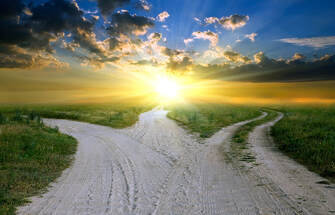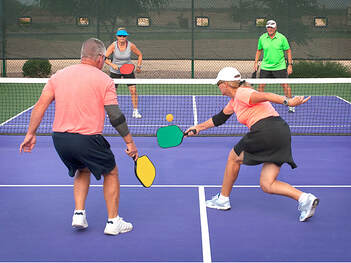 By Brooke Maffia Wang A huge smile lit up my face when Brene Brown introduced Esther Perel on the podcast that cycled onto my car speakers. Two of my favorites. It was a fantastic conversation. However, after I noticed envy and comparison begin to nag at me a bit. When I hear skilled people doing things they love that are big and spectacular I can sometimes wonder, “What am I doing? Does compassionate listening with people really make any kind of difference?” It would be highly inappropriate, not to mention unethical, to make a podcast out of spiritual direction sessions. Although, I do love the idea of one off conversations with a spiritual director that others could listen to— if for no other reason but to help give people a felt understanding of the experience. As well as not being understood by many, within the history of the church spiritual direction has a bit of a dark past. This life-giving supportive ministry was lost to some for many years. Today it can be confused with mentoring or discipleship, both fantastic ministries— just different than spiritual direction. Here at the CCSV we believe: Spiritual direction is a form of holy listening and attending to the Spirit of God in daily life. It is an intentional relationship where a trained listener companions with another along the spiritual journey. It is a unique relationship between Director, Directee, and God. Like with anything there is a wide range of abilities, training and skill of spiritual directors. Unfortunately, there are people who hold the title of without living the ethical practice. One reason we exist at the CCSV is to offer a quality of care in this unregulated field. We believe ongoing supervision and personal direction is non-negotiable to those offering spiritual direction-- no matter how many directee’s we have or how long we’ve been practicing. We are forever learners. What we do as spiritual directors is not big and spectacular. It is slow, deep and hidden. It promotes more of God, and less of the director. The envy and comparison the podcast evoked offer me a great opportunity to make an appointment with my supervisor. But, it cannot take away what I know deep in my bones-- that the tender life changing shifts I witness in people souls that bring healing and freedom are no less valuable because they are not seen or heard by the masses. The honor and privilege I feel to sit with others in these vulnerable places is palpable. And, I'm crazy enough to believe that this work of deep compassionate listening is essential for our country and our world to heal and move forward. If you have never tried spiritual direction before, I invite you to reach out to one of our directors. If you had an experience that wasn’t optimal or in a season of life that could be supported by this ministry I invite you to consider trying again. If you are a spiritual director and are looking for support and community along the way I invite you to keep learning with us.  by Barbara Milligan Almost three years ago I discovered a spiritual practice by accident. Pickleball. I hadn’t started playing it as a spiritual practice. The pickleball court is not where I go to slow down and connect with that calm center inside me. Like most sports, pickleball is ferociously competitive. And competition doesn’t seem very holy. I’m trying to beat my opponents, not help them win or make the world a kinder place. And rather than focus on a sacred word, phrase, or image, I’m focusing on a plastic ball full of holes, which I’m trying to hit over the net and inside the court at my opponents’ feet or at a spot they can’t run to fast enough. How spiritually formational is that? At some point I discovered, however, that playing pickleball was forming in me a healthy humility I didn’t know I needed or wanted. I’m a little embarrassed when I can’t control the ball and everyone sees my mistakes. I hit the ball into the net repeatedly. I swat air. I freeze as the ball bounces past me. But so do the other players in my group—some less often than others if they’re former tennis players. So I’m feeling less alone. Instead of shaming each other, we build each other up by laughing at ourselves or by shouting, often to an opponent, “Great serve!” or, “It was the wind,” or, “Good try! You would have had to lie down to return that one.” I’m reminded, every time I play, that I’m human, that I have limits, and that much of life is beyond my control. I’m reminded also that I’m deeply loved by the One who created me with limits and that I can connect with that Love wherever I am. Even on a pickleball court. And maybe it wasn’t so accidental after all. What accidental spiritual practice have you discovered? Can you describe how it’s forming you? Or, how might you turn one of your present activities into a spiritual practice? |
Archives
July 2024
|